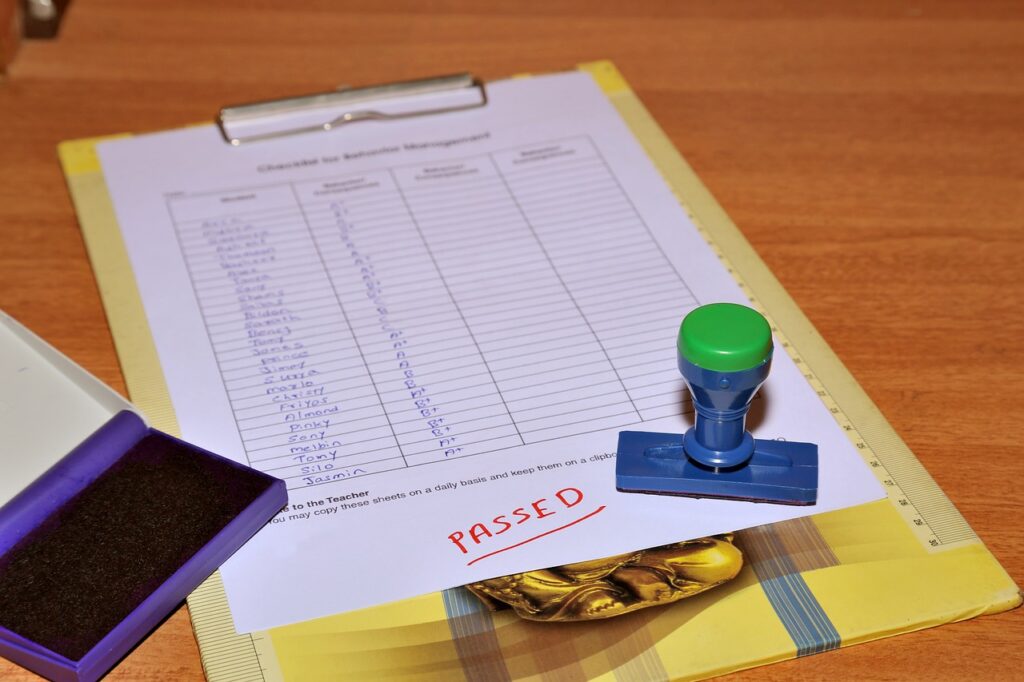In the plumbing industry, obtaining a certification plays a crucial role in advancing your career. Not only does it validate your skills and knowledge, but it also enhances your credibility and marketability as a professional plumber. Employers often prefer certified plumbers, as they have proven expertise in their field. Moreover, certified plumbers may have access to higher-paying jobs and leadership positions.
Overview of the Plumbing Certification Process
The plumbing certification process can be broken down into a few key steps. First, you’ll need to complete the required education and training, typically through an apprenticeship or trade school program. Next, gain hands-on experience in the field to meet the necessary requirements for certification. Then, study for and pass the certification exam, ensuring you have a comprehensive understanding of plumbing practices and codes. Finally, apply for and obtain your certification from a recognized organization. Keep in mind that you may need to maintain and renew your certification periodically to stay up to date with industry standards and regulations.
Understanding Plumbing Certification
What is a Plumbing Certification?
Plumbing certification is an official recognition awarded to skilled professionals in the plumbing industry. This certification demonstrates that a plumber has met specific educational, training, and examination requirements. It shows that the certified individual is knowledgeable in various plumbing techniques, safety practices, and codes. Thus, it serves as an assurance to clients and employers of the plumber’s competence.
Types of Certifications Available
There are several types of plumbing certifications available, catering to different levels of expertise and specialization. Some common certifications include:
- Apprentice Plumber: For those who have completed formal training and are gaining practical experience under the supervision of a licensed plumber.
- Journeyman Plumber: For experienced plumbers who have completed their apprenticeship and can work independently on projects.
- Master Plumber: For highly experienced plumbers who have spent several years in the field and demonstrated advanced knowledge and skills.
- Specialty Certifications: For plumbers with expertise in specific areas, such as backflow prevention, green plumbing, or medical gas systems.
Benefits of Being Certified
Obtaining a plumbing certification offers numerous benefits for your career. First, it validates your skills and knowledge in the field, making you more marketable to potential employers and clients. Certified plumbers are often viewed as more competent and reliable, which can lead to more job opportunities and higher pay. Furthermore, being certified can boost your confidence and credibility, positioning you for leadership roles and enabling you to mentor others in the industry. Lastly, staying updated with the latest industry standards and best practices through certification helps ensure that you deliver high-quality work, contributing to your professional reputation and growth.

Eligibility and Requirements
Educational Prerequisites
Before pursuing plumbing certification, you must fulfill certain educational prerequisites. These requirements typically include completing a high school diploma or GED and enrolling in a trade school or vocational program that offers plumbing courses. These programs cover essential plumbing concepts, such as pipe installation, blueprint reading, and local plumbing codes. In addition, some certifications may require specialized training in specific areas, such as backflow prevention or medical gas systems.
Experience and Training Requirements
Beyond education, obtaining plumbing certification also necessitates hands-on experience and training. Most certification programs require candidates to complete an apprenticeship, which involves working under the supervision of a licensed plumber for a specific period. Apprenticeships typically last 4 to 5 years and combine classroom instruction with on-the-job training, providing practical skills in pipe fitting, welding, and plumbing system installation and repair. Higher-level certifications, such as the Master Plumber designation, often require several years of experience in the field.
Necessary Skills and Knowledge
In addition to education and experience, certified plumbers must possess a wide range of skills and knowledge. Key competencies include:
- Technical skills: Proficiency in installing, maintaining, and repairing plumbing systems, as well as the ability to read blueprints and use specialized tools.
- Mathematical skills: Aptitude for performing calculations related to pipe sizing, water flow, and pressure.
- Problem-solving skills: Capacity to diagnose and troubleshoot plumbing issues effectively and efficiently.
- Communication skills: Ability to clearly explain plumbing problems and solutions to clients and colleagues.
- Knowledge of codes and regulations: Familiarity with local, state, and national plumbing codes and adherence to safety protocols and best practices.
Meeting these eligibility requirements is essential for obtaining and maintaining plumbing certification, ultimately enhancing your career prospects and professional growth.
Steps to Obtain Plumbing Certification
Complete Required Education and Training
The first step in obtaining plumbing certification is completing the necessary education and training. Enroll in a trade school or vocational program that offers plumbing courses, covering essential concepts such as pipe installation, blueprint reading, and local plumbing codes. Some certifications may require specialized training in specific areas, so ensure you fulfill these requirements as well.
Gain Hands-On Experience Through Apprenticeships
Next, gain hands-on experience by completing an apprenticeship under the supervision of a licensed plumber. Apprenticeships typically last 4 to 5 years and combine classroom instruction with on-the-job training. This experience allows you to develop practical skills in pipe fitting, welding, and plumbing system installation and repair, setting the foundation for a successful career in the field.
Study for and Pass the Certification Exam
After acquiring the necessary education and experience, study for and pass the certification exam. Exams are designed to assess your knowledge of plumbing techniques, safety practices, and codes. Use study materials and resources, such as textbooks, practice exams, and online courses, to prepare effectively. Dedicate time to hands-on practice, as this is critical for mastering the skills needed to pass the exam.
Apply for and Obtain Certification from a Recognized Organization
Once you have passed the exam, apply for your plumbing certification from a recognized organization, such as a state licensing board or professional association. Ensure that you meet all the application requirements, which may include providing proof of education, training, and exam results. After your application has been approved, you will receive your plumbing certification, validating your skills and knowledge in the industry.
Maintain and Renew Certification as Needed
Lastly, maintain and renew your plumbing certification as required by the issuing organization. This may involve completing continuing education courses, attending workshops or conferences, or retaking the certification exam. Staying up to date with industry standards and best practices ensures that you remain a competitive and knowledgeable professional in the plumbing field.

Choosing the Right Certification Program
Factors to Consider When Selecting a Program
When choosing a plumbing certification program, several factors should be considered. These include:
- Reputation and accreditation: Ensure the program is offered by a reputable and accredited organization or institution.
- Curriculum: Assess whether the program covers relevant topics and provides the necessary training for your desired certification.
- Flexibility: Consider whether the program offers flexible scheduling, such as part-time, evening, or online classes, to accommodate your needs.
- Cost: Compare the costs of different programs, factoring in tuition, fees, and any additional expenses, such as books or tools.
- Success rate: Investigate the program’s success rate in terms of exam pass rates and job placement.
Taking these factors into account will help you select a program that best aligns with your career goals and personal circumstances.
Accredited and Reputable Organizations and Institutions
When selecting a plumbing certification program, it is essential to choose one offered by an accredited and reputable organization or institution. This may include state licensing boards, professional associations, or accredited trade schools and colleges. Obtaining certification from a recognized entity ensures that your credentials will be widely accepted and respected within the industry.
Costs and Financial Assistance Options
Cost is an important factor to consider when choosing a certification program. Tuition and fees can vary widely, so be sure to compare different programs and factor in any additional expenses, such as books or tools. Furthermore, explore financial assistance options, such as grants, scholarships, or employer-sponsored programs, to help offset the costs of your education and training. Investing in a high-quality plumbing certification program is an important step toward a successful and rewarding career in the industry.
Preparing for the Certification Exam
Study Materials and Resources
To effectively prepare for the plumbing certification exam, gather a variety of study materials and resources. These may include textbooks, practice exams, online courses, and study guides. Utilize resources provided by the certifying organization, as they often offer exam-specific materials tailored to their testing requirements. Additionally, consider joining study groups or engaging in tutoring sessions to supplement your learning and gain insights from others in the field.
Tips for Effective Exam Preparation
Effective exam preparation is crucial for passing the plumbing certification exam. Consider the following tips:
- Create a study schedule: Set aside dedicated time for studying and stick to a consistent routine.
- Break down complex topics: Divide complicated subjects into smaller sections to make them more manageable.
- Practice problem-solving: Work through practice problems and scenarios to apply your knowledge in real-world situations.
- Review and reinforce: Periodically review previously learned material to reinforce your understanding.
- Stay organized: Keep your study materials and notes organized to easily locate information when needed.
- Manage stress: Incorporate relaxation techniques, such as deep breathing or meditation, to reduce anxiety and stay focused.
Importance of Hands-On Practice
Hands-on practice is an essential aspect of preparing for the plumbing certification exam. Practical experience allows you to develop the skills needed to effectively diagnose and troubleshoot plumbing issues, as well as perform installations and repairs. Engage in hands-on practice during your apprenticeship or training program, and seek opportunities to apply your knowledge in real-world settings. The more experience you gain, the better prepared you will be to pass the exam and excel in your plumbing career.

Advancing Your Plumbing Career
Continuing Education Opportunities
Continuing education is crucial for staying current with industry trends and maintaining your plumbing certification. Participate in workshops, conferences, and training courses to expand your knowledge and skills. Many professional associations and trade schools offer continuing education programs focused on various aspects of plumbing, such as new technologies, code updates, and safety practices. By engaging in lifelong learning, you can stay competitive in the job market and enhance your career prospects.
Additional Certifications to Consider
Beyond the basic plumbing certifications, you may want to consider pursuing additional certifications to further advance your career. Specialized certifications can help you demonstrate expertise in specific areas, such as backflow prevention, green plumbing, or medical gas systems. Obtaining multiple certifications can set you apart from other professionals, opening up new job opportunities and potentially leading to higher pay.
Networking and Professional Development
Networking and professional development play a vital role in advancing your plumbing career. Join professional associations, attend industry events, and connect with fellow plumbers to build a strong professional network. Networking can help you discover job opportunities, gain insights into industry trends, and learn from the experiences of others in the field. Additionally, consider participating in mentorship programs or seeking out leadership roles within your organization to further develop your skills and contribute to the growth of the plumbing industry.
Conclusion
Plumbing certification is a crucial factor in advancing your career within the industry. It validates your skills, knowledge, and expertise, making you more marketable to employers and clients. Pursuing certification can lead to increased job opportunities, higher pay, and professional growth. By following the steps outlined in this guide, including education, training, and exam preparation, you can obtain your plumbing certification and unlock a world of opportunities.
